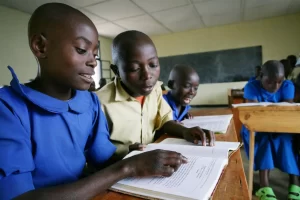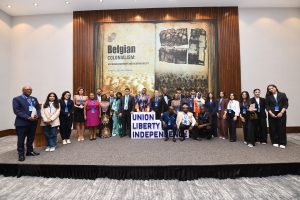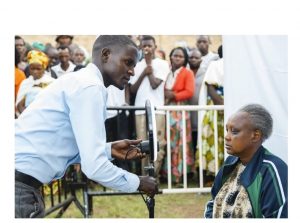Where landslides once ruled, coffee now pays school fees: Rwanda’s Green Gicumbi Project brings a rural rebirth
3 min read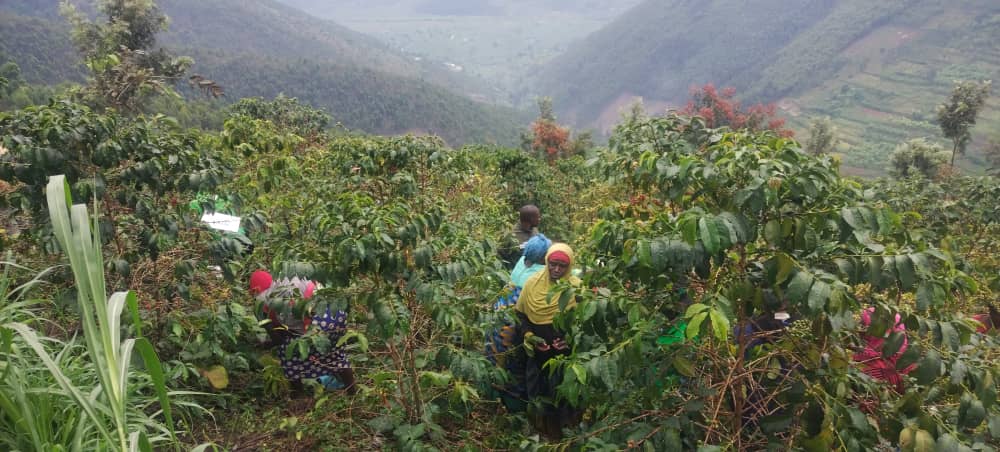
Where muddy slopes once threatened homes and livelihoods, rows of resilient coffee plants now stand rooted in transformed soil, bringing not only stability to the land but prosperity to the people. In northern Rwanda’s Gicumbi District, the Green Gicumbi Project is doing more than fighting climate change, it is rewriting rural destiny.
Launched in 2019 with funding from the Green Climate Fund (GCF) and implemented by the Rwanda Green Fund (FONERWA), the project has now achieved 98% of its activities. Its goal? Build climate resilience in vulnerable communities through reforestation, cooperative farming, climate-resilient housing,and most impactfully, coffee cultivation on eroded hills once abandoned to landslides.
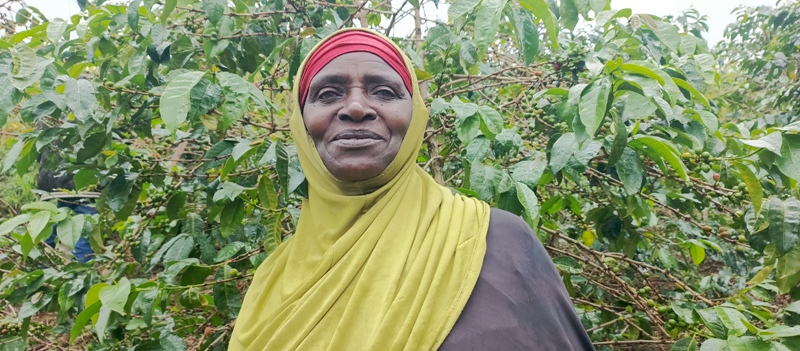
For residents like 72-year-old Mukankuranga Cecile, the shift has been life-altering.
“When my husband died, I had five children and no way to make money. I started with 120 coffee trees. Today, I have over 3,000, and each harvest earns me more than 800,000 francs,” she said proudly. “Add another 300,000 from pumpkins I intercrop between the coffee rows.”
What began as a cautious partnership with Green Gicumbi has grown into full-scale empowerment. Mukankuranga recalls her initial fears.
“They came to plant on my land. I thought the district would take the coffee trees away after they grew,” she said. “But instead, they gave them to me.”
With her income, she has built a modern home worth 3 million Rwandan francs, bought a cow, hired seven workers, and reinvested in more coffee.
Coffee against the storm
Bwisige Sector was once known for its steep terrain and heavy erosion. “Even manure we applied would be swept away by the rains,” said Ndagijimana Jean de Dieu, a farmer in Gihuke. But since coffee was introduced, planted with contour trenches and agroforestry, the land holds.
“The soil no longer washes away,” confirmed Mujawamariya Dative. “Water stays in place and feeds the coffee trees.”
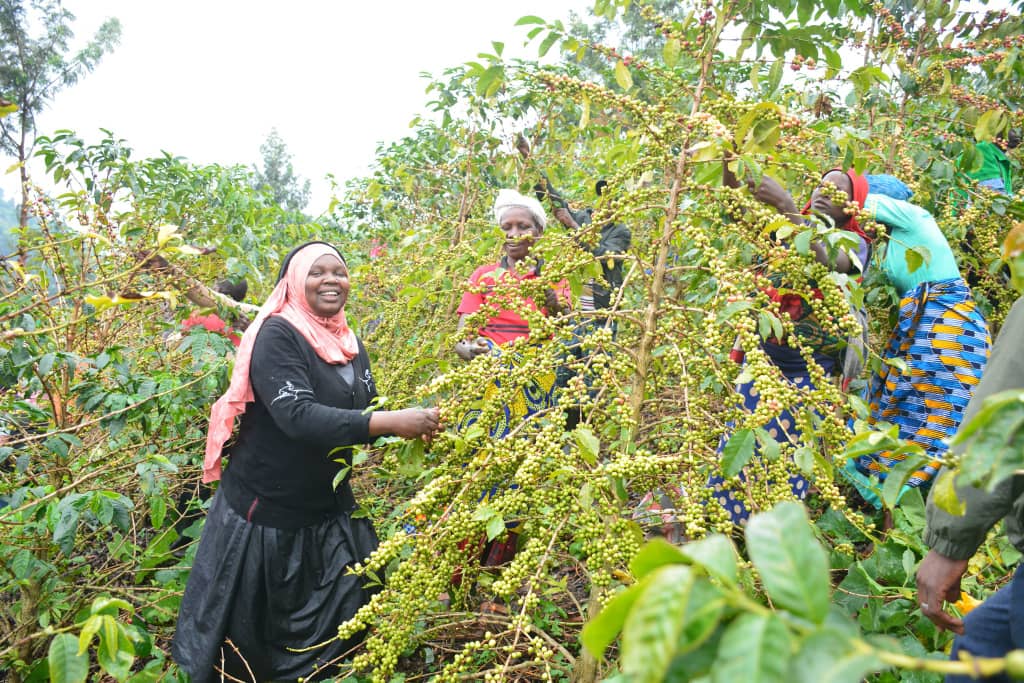
More than 100,000 trees have been planted on 40 hectares at Gihuke Hill, where even terraces were once impossible to build. Farmers now harvest not only coffee but dignity.
Ngurumuryango Célestin, a longtime resident, beams with pride.
“We used to bring cattle to graze here because nothing grew. Now, it’s our second coffee harvest, and I already earned 100,000 francs.”
From bare hills to booming cooperatives
The initiative formed the cooperative Tubura Kawa Gihuke, bringing together 137 farmers. Each tree can yield up to 10 kilograms of cherries per season, sold at 700 francs per kilo.
“Before this, people here lived in poverty,” said Habyarimana Diogène, the cooperative president. “Now, no member lacks school fees. Some bought cows. Others renovated their homes.”
Even skeptics like Mukankuranga Césarie have changed their tune.
“We thought we’d starve if we stopped growing beans. But now I don’t miss 500 kilos each harvest. I bought a cow and iron sheets for my house.”
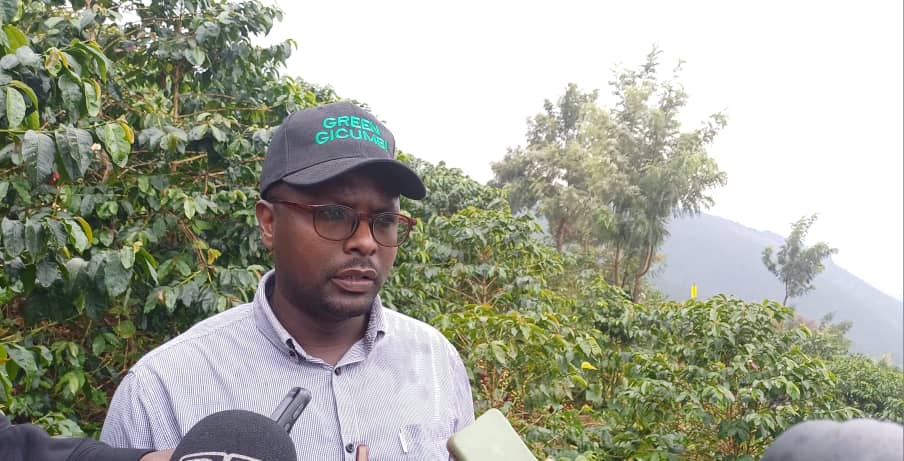
Beyond the yield, the transformation is ecological. “The area was eroded. Even the air was affected,” said agronomist Ntakirutimana Théogène. “Now, the trenches hold water. Organic matter returns to the soil. Biodiversity is coming back.”
From project to policy
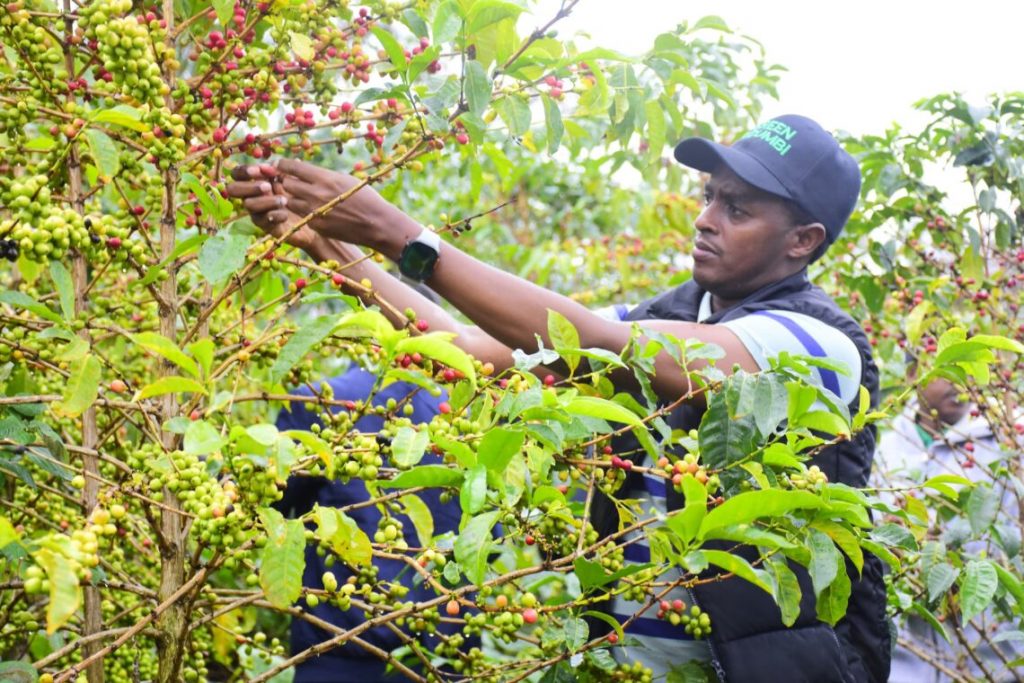
Project Leader Jean Marie Vianney Kagenza calls coffee a strategic crop.
“It stabilizes the soil, traps carbon, brings income, and allows intercropping. It’s perfect for climate resilience,” he said. “Look at Mukankuranga. She turned from subsistence to success.”
Over 2,600 farmers across Gicumbi have received improved seedlings of RAB C15, a new high-yielding, disease-resistant variety. Many are women, once left behind in agriculture.
With the project scheduled to end in May 2026, its legacy is already visible,not just in numbers, but in lives.
“They taught us that farming is investment,” said Mukankuranga. “Not just survival.”
From landslide-prone hills to fertile economic zones, the Green Gicumbi Project shows what’s possible when climate action meets local ownership, one coffee tree at a time.
Telesphore KABERUKA
